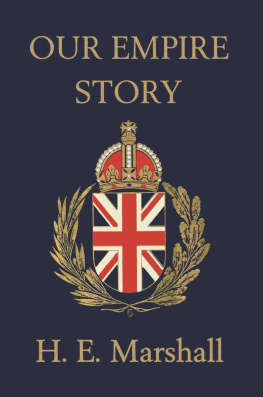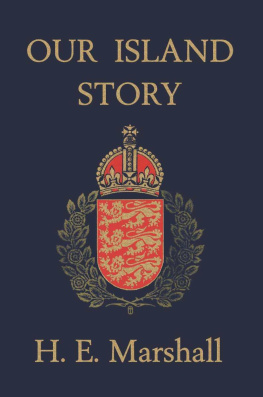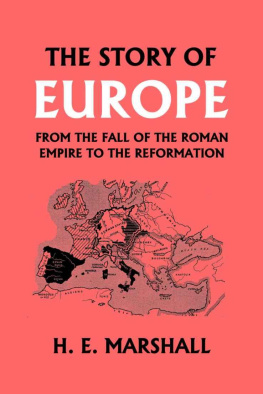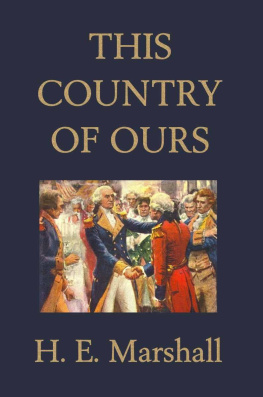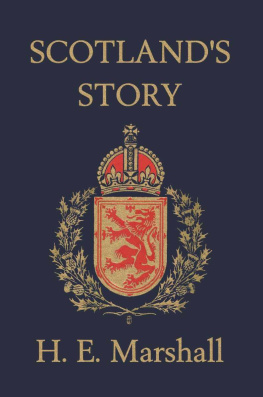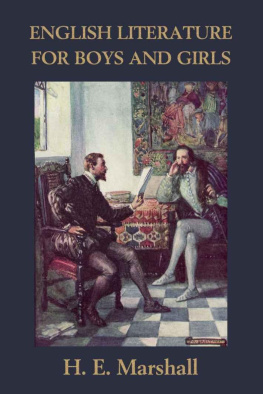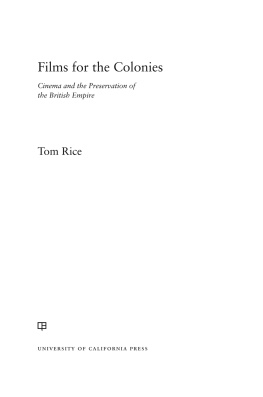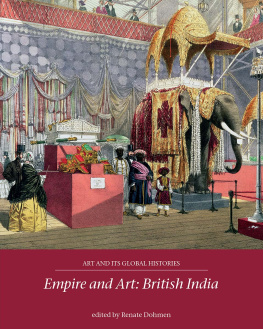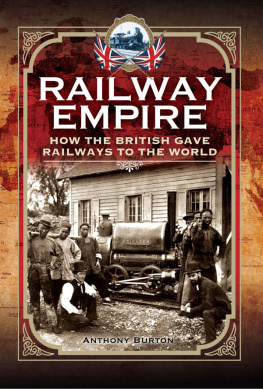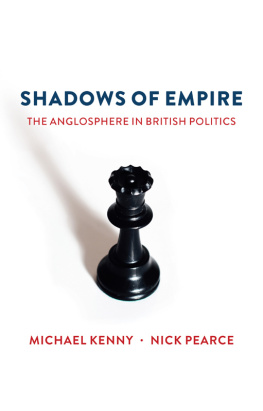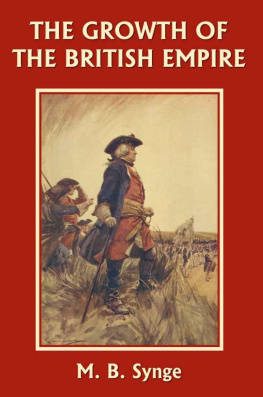H. E. Marshall - Our Empire Story
Here you can read online H. E. Marshall - Our Empire Story full text of the book (entire story) in english for free. Download pdf and epub, get meaning, cover and reviews about this ebook. year: 2006, publisher: Yesterdays Classics, genre: History. Description of the work, (preface) as well as reviews are available. Best literature library LitArk.com created for fans of good reading and offers a wide selection of genres:
Romance novel
Science fiction
Adventure
Detective
Science
History
Home and family
Prose
Art
Politics
Computer
Non-fiction
Religion
Business
Children
Humor
Choose a favorite category and find really read worthwhile books. Enjoy immersion in the world of imagination, feel the emotions of the characters or learn something new for yourself, make an fascinating discovery.
- Book:Our Empire Story
- Author:
- Publisher:Yesterdays Classics
- Genre:
- Year:2006
- Rating:5 / 5
- Favourites:Add to favourites
- Your mark:
- 100
- 1
- 2
- 3
- 4
- 5
Our Empire Story: summary, description and annotation
We offer to read an annotation, description, summary or preface (depends on what the author of the book "Our Empire Story" wrote himself). If you haven't found the necessary information about the book — write in the comments, we will try to find it.
Our Empire Story — read online for free the complete book (whole text) full work
Below is the text of the book, divided by pages. System saving the place of the last page read, allows you to conveniently read the book "Our Empire Story" online for free, without having to search again every time where you left off. Put a bookmark, and you can go to the page where you finished reading at any time.
Font size:
Interval:
Bookmark:
All rights reserved. No part of this book may be reproduced or retransmitted in any form or by any means without the written permission of the publisher.
This edition, first published in 2010 by Yesterday's Classics, an imprint of Yesterday's Classics, LLC, is an unabridged republication of the work originally published by Thomas Nelson & Sons, Ltd. in 1908. This title is available in a print edition (ISBN 978-1-59915-087-1).
Yesterday's Classics republishes classic books for children from the golden age of children's literature, the era from 1880 to 1920. Many of our titles are offered in high-quality paperback editions, with text cast in modern easy-to-read type for today's readers. The illustrations from the original volumes are included except in those few cases where the quality of the original images is too low to make their reproduction feasible. Unless specified otherwise, color illustrations in the original volumes are rendered in black and white in our print editions.
"The Empire upon which the sun never sets." We all know these words, and we say them with a somewhat proud and grand air, for that vast Empire is ours. It belongs to us, and we to it.
But although we are proud of our Empire it may be that some of us know little of its history. We only know it as it now is, and we forget perhaps that there was a time when it did not exist. We forget that it has grown to be great out of very small beginnings. We forget that it did not grow great all at once, but that with pluck and patience our fellow-countrymen built it up by little and by little, each leaving behind him a vaster inheritance than he found. So, "lest we forget," in this book I have told a few of the most exciting and interesting stories about the building up of this our great heritage and possession.
But we cannot
"Rise with the sun and ride with the same,
Until the next morning he rises again."
We cannot in one day grid the whole world about, following the sun in his course, visiting with him all the many countries, all the scattered islands of the sea which form the mighty Empire upon which he never ceases to shine. No, it will take us many days to compass the journey, and little eyes would ache, little brains be weary long before the tale ended did I try to tell of all "the far-away isles of home, where the old speech is native, and teh old flag floats." So in this book you will find stories of the five chief portions of our Empire only, that of Canada, Australia, New Zealand, South Africa, and India. But perhaps some day, if you greet these stories as kindly as you have greeted those of England and of Scotland, I will tell you in another book more stories of Our Empire.
The stories are not all bright. How should they be? We have made mistakes, we have been checked here, we have stumbled there. We may own it without shame, perhaps almost without sorrow, and still love our Empire and its builders. Still we may say,
"Where shall the watchful sun,
England, my England,
Match the master-work you've done,
England, my own?
When shall we rejoice agen
Such a breed of mighty men
As come forward, one to ten,
To the song on your bugles blown,
England
Down the years on your bugles blown?"
H.E. MARSHALL
Oxford, 1908
M ANY hundred years ago, Lief, the son of Eric the Red, stood upon the shores of Norway. His hair was fair and long, and his eyes as blue as the sea upon which he looked. And as he watched the sea-horses tossing their foam-manes, his heart longed to be out upon the wild waves.
For Bjarne the Traveller had come home. He had come from sailing far seas, and had brought back with him news of a strange, new land which lay far over the waves towards the setting of the sun. It was a land, he said, full of leafy woods and great tall trees such as had never been seen in Norway. Above a shore of white sand waved golden fields of corn. Beneath the summer breeze vast seas of shimmering grass bowed themselves, and all the air was scented with spice, and joyous with the song of birds.
"I will find this land," cried Lief Ericson, "I will find this land and call it mine."
All day long he paced the shore, thinking and longing, and when the shadows of evening fell he strode into his father's hall.
Eric the Red sat in his great chair, and Lief, his son, stood before him. The firelight gleamed upon the gold bands round his arms and was flashed back from his glittering armour. "Father," he cried, "give me a ship. I would sail beyond the seas to the goodly lands of which Bjarne the Traveller tells."
Then Eric the Red poured shining yellow gold into the hands of Lief, his son. "Go," he cried, "buy the ship of Bjarne and sail to the goodly lands of which he tells."
So Lief bought the ship of Bjarne the Traveller, and to him came four-and-thirty men, tall and strong and eager as he, to sail the seas to the new lands towards the setting sun.
Then Lief bent his knee before his father. "Come, you, O my father," he cried, "and be our leader."
But Eric the Red shook his head. "I am too old," he said. Yet his blue eyes looked wistfully out to sea. His old heart leaped at the thought that once again before he died he might feel his good ship bound beneath him, that once again it would answer to the helm under his hand as his horse to the rein.
"Nay, but come, my father," pleaded Lief, "you will bring good luck to our sailing."
"Ay, I will come," cried Eric the Red. Then rising, the old sea-king threw off his robe of state. Once again, as in days gone by, he clad himself in armour of steel and gold, and mounting upon his horse he rode to the shore.
As Eric neared the ship the warriors set up a shout of welcome. But even as they did so his horse stumbled and fell. The king was thrown to the ground. In vain he tried to rise. He had hurt his foot so badly that he could neither stand nor walk.
"Go, my son," said Eric sadly, "the gods will have it thus. It is not for me to discover new lands. You are young. Go, and bring me tidings of them."
So Lief and his men mounted into his ship and sailed out toward the West. Three weeks they sailed. All around them the blue waves tossed and foamed but no land did they see. At last, one morning, a thin grey line far to the west appeared like a pencil-streak across the blue. Hurrah, land was near! On they sailed, the shore ever growing clearer and clearer. At length there rose before them great snow-covered mountains, and all the land between the sea and the hills was a vast plain of snow.
"It shall not be said that we found no land," said Lief; "I will give this country a name." So they called it Hellaland.
Then on again they sailed. Again they came to land. This time it was covered with trees, and the long, low sloping shore was of pure white sand. They called it Markland, which means Woodland. Again they sailed on, until at length they came to a place where a great river flowed into the sea. There they made up their minds to stay for the winter.
So they cast anchor and left the ship and put up their tents upon the shore. Then they built a house of wood in which to live. In the river they found fish in great plenty, and in the plains grew wild corn. So they suffered neither from cold nor hunger.
Font size:
Interval:
Bookmark:
Similar books «Our Empire Story»
Look at similar books to Our Empire Story. We have selected literature similar in name and meaning in the hope of providing readers with more options to find new, interesting, not yet read works.
Discussion, reviews of the book Our Empire Story and just readers' own opinions. Leave your comments, write what you think about the work, its meaning or the main characters. Specify what exactly you liked and what you didn't like, and why you think so.

